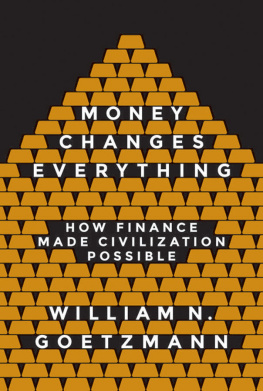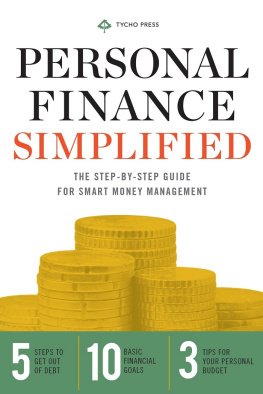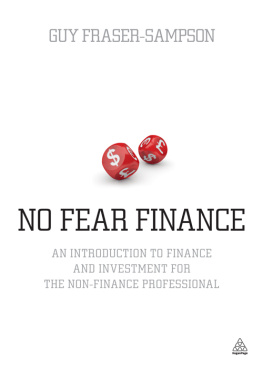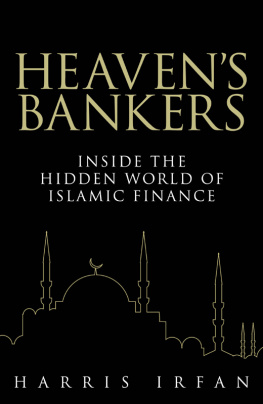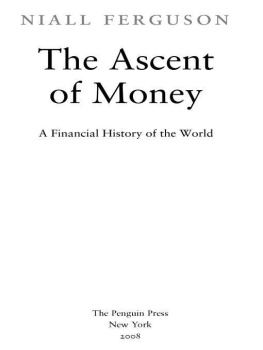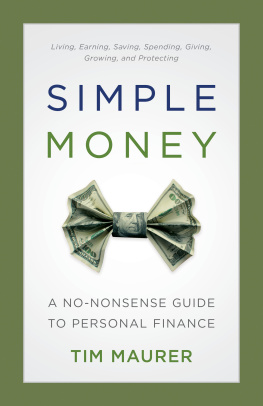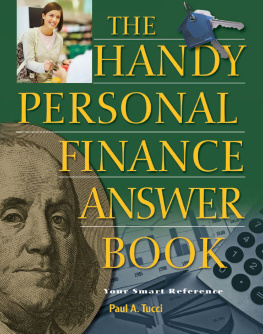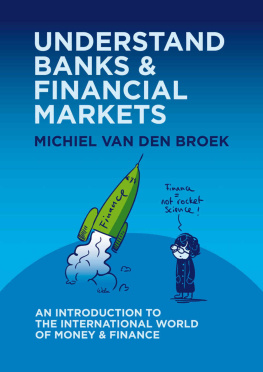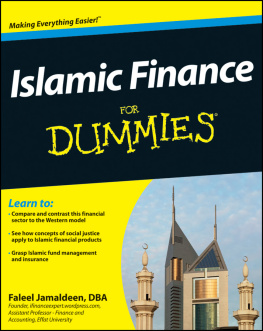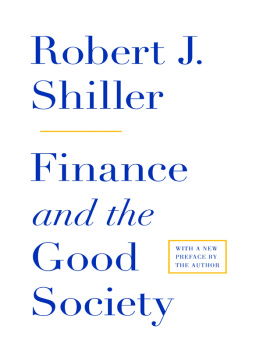MONEY
CHANGES
EVERYTHING
MONEY
CHANGES
EVERYTHING
HOW FINANCE
MADE CIVILIZATION
POSSIBLE
WILLIAM N. GOETZMANN
PRINCETON UNIVERSITY PRESS
PRINCETON & OXFORD
Copyright 2016 by William N. Goetzmann
Requests for permission to reproduce material from this work should be sent to Permissions, Princeton University Press
Published by Princeton University Press
41 William Street, Princeton, New Jersey 08540
In the United Kingdom: Princeton University Press
6 Oxford Street, Woodstock, Oxfordshire OX20 1TR
press.princeton.edu
Jacket design by Chris Ferrante
All Rights Reserved
Library of Congress Cataloging-in-Publication Data
Goetzmann, William N., author.
Money changes everything : how finance made civilization possible / William N. Goetzmann.
pages cm
Includes bibliographical references and index.
ISBN 978-0-691-14378-1 (hardcover : alk. paper)
--ISBN 0-691-14378-1 (hardcover : alk. paper)
1. Finance--History. 2. Economic history. 3. Civilization--History. I. Title.
HG171.G638 2016
332.09--dc23
2015025879
British Library Cataloging-in-Publication Data is available
This book has been composed in Garamond Premier Pro and Montserrat
Printed on acid-free paper.
Printed in the United States of America
1 3 5 7 9 10 8 6 4 2
CONTENTS
ACKNOWLEDGMENTS
Many thanks to everyone who read and commented on drafts of this bookthey include friends, colleagues, and coauthors: my editor Seth Ditchik; my colleagues K. Geert Rouwenhorst, Rik Frehen, David Le Bris, Martin Shubik, Zhiwu Chen, Douglas Rae, Valerie Hansen, Henry Hansmann; and three anonymous reviewers. Most of all I acknowledge the support of my late father William H. Goetzmann, whose encouragement and support throughout the project kept me going. He stressed the importance of communicating to broader audiences. I thank Leigh Ann Clark for her help with the practical challenges of key parts of this project. Many thanks to Johanna Palacio for project management and her excellent work on the images for the book. I owe a great debt to Yuan Chen for her thoughtful editing of the sections of the book pertaining to China. Over the years, Ulla Kasten has helped me with access to the Yale Babylonian Collection.
I also thank the many scholars who gave me advice and pointed me in the right direction: Ben Foster, Marc Van De Mieroop, Elisabeth Kll, Robert Shiller, Timothy Young, Catherine Labio, Jonathan Spence, Steven Pincus, and Naomi Lamoreaux. I thank William Fitzhugh and Harvey Weiss for including me in their pathbreaking archaeological expeditions early in my career. And I thank my friend William S. Reese for introducing me to many of the extraordinary documents in financial history that have become part of the narrative of this book.
I particularly acknowledge the support of the Yale School of Management over the years. Yale funding, along with the funding of an anonymous donor to the International Center for Finance, allowed me to visit the important sites in financial history, to collect and study early financial documents, to explore archives throughout the world, to build databases of early capital markets, to bring together the leading scholars in the field for rewarding discussions and the cross-pollination of ideas, and finally to develop cases and a course in financial history. Although not part of the book per se, the cases developed by Jaan Elias, Andrea Nagy-Smith, and Jean Rosenthal deeply enriched my understanding of the past. Most of all, I thank Yale University for creating an intellectually generous environmentand one that consistently celebrates interdisciplinary research.
New Haven, 2015
MONEY
CHANGES
EVERYTHING
INTRODUCTION
Finance is often regarded as an abstract, mathematical subject that occasionally calls attention to itself by dramatic crises or as a symbol of excess. In fact, finance has been an integral part of the development of human society over the past 5,000 years. Finance played a key role in the development of the first cities, the emergence of classical empires, and the exploration of the world.
The history of finance is an exciting story. For example, writing was invented in the ancient Near East specifically for recording financial contracts. Finance was integral to the first complex models of time and risk. The golden age of Athens owes as much to financial litigation as it does to Socrates. Romes legendary wealth could not have sustained itself over the centuries without complex financial organization. Ancient Chinese civilization developed its own financial tradition that enabled rulers to hold together a vast empire.
In modern Europe, finance stimulated a novel mathematical tradition that quantified and analyzed risk and made possible an unprecedented era of exploration and discovery. A new financial structurethe corporationemerged as a means to aggregate capital for trade with Asia and the Americas. Finance was an important co-factor in the Industrial Revolution. In the twentieth century, capital markets democratized investing and stimulated novel solutions to major social problems: social security, sovereign funds, and personal savings accounts are all mechanisms intended to reduce household economic risk. They have deep roots in the history of finance.
Along with these important contributions to humankind, finance has also created problems: debt, market bubbles, devastating crises and crashes, exploitative corporations, imperialism, income inequalityto name only a few. The story of finance is the story of a technology: a way of doing things. Like other technologies, it developed through innovations that improved efficiency. It is not intrinsically good or bad.
TIME AND MONEY
The power of finance to effect such important transitions in world history is that it moves economic value forward and backward through time. Think about a mortgage. It converts a homebuyers promise of thirty years of future monthly payments into a lump sum of money in the present. A mortgage is so commonplace that it is hard to fully appreciate it. A homebuyer can suddenly conjure up a fortune he or she does not have. Where did this great power come from? Why does it work? What can go wrong? These are some of the key issues explored in this book.
A mortgage shifts money to the present, but, for the lender it also moves money into the future. By the same token, a person worried about retirement can actually buy future living money todayusually at a significant discount. The ability to solve the fundamental problem of taking care of your future self is incredibly empowering. It rests on a sophisticated technological structure that is able to express and enforce commitments that extend over decades and in some cases over centuries.
In essence, financial technology is a time machine we have built ourselves. It cant move people through time, but it can move their money. As a result, it alters the economic position of our current and future selves. It also changes the way we think. Finance has stretched the ability of humans to imagine and calculate the future. It has also demanded a deeper understanding and quantification of the past, because history is the fundamental basis for making future predictions. Finance has increasingly made us creatures of time. Financial architecture exists inand shapesthe possibilities of the temporal dimension.
This book explores key steps in the evolution of finance in world history. My fundamental premise is that civilizations demand sophisticated tools for managing the economics of time and risk. Finance emerged with the first civilizations of the ancient Near East and since then has played a key role in many cultures we recognize as complex societies. Civilizations over the past 5,000 years have faced a common set of problems, and they have either borrowed or invented a similar set of financial tools to solve them.
Next page
